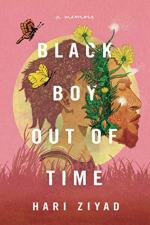
|
| Name: _________________________ | Period: ___________________ |
This test consists of 15 multiple choice questions and 5 short answer questions.
Multiple Choice Questions
1. In Canto II: Queer, "Chapter 13: Logging Out of Passport Twitter," what does Hari's responsibility entail in his friendship with Cloud?
(a) To protect his Black identity and community.
(b) To avoid confronting anti-Blackness.
(c) To suppress his own emotions.
(d) To prioritize Cloud's well-being over his own.
2. What motivates Hari to cause some of the scars on his body?
(a) To prove his toughness.
(b) To avoid questioning his sexuality.
(c) To show his resistance to societal norms.
(d) To gain acceptance from his family.
3. In Canto II: Queer, "Chapter 11: My Gender is Black," why does Hari believe people assume Khia is a male dog?
(a) Because Khia is a pit bull.
(b) Because Khia's name sounds masculine.
(c) Because Khia has aggressive behavior.
(d) Because Khia is large in size.
4. What does Hari learn about the treatment of Black employees in the television industry?
(a) They face disciplinary action for addressing anti-Black experiences.
(b) They are often rewarded for speaking out about their experiences.
(c) They are given opportunities to lead important projects.
(d) They are encouraged to express their opinions openly.
5. In Canto II: Queer, "Chapter 13: Logging Out of Passport Twitter," what does the text imply about the impact of anti-Blackness on Hari's relationship with Cloud?
(a) Anti-Blackness leads to open conversations.
(b) Anti-Blackness causes constant conflicts.
(c) Anti-Blackness has no effect on their friendship.
(d) Anti-Blackness strengthens their bond.
6. In Canto III: Free, "Chapter 16: A Prayer for Freedom," what is the main theme?
(a) Parent-child relationships.
(b) Nostalgia.
(c) Loneliness.
(d) Queer identity.
7. What does robbing Black childhoods refer to?
(a) The historical exploitation of Black children.
(b) The process of erasing the innocence of Black children.
(c) The impact of the carceral state on Black children's lives.
(d) The act of physically stealing from Black children.
8. In Canto II: Queer, "Chapter 9: Representation Matters?", what is Hari's initial perception of moving to New York City for college?
(a) He is worried about being away from hisparents.
(b) He is excited to explore his queerness without restrictions.
(c) He is hesitant to leave his hometown.
(d) He is expected to find more Black faces at NYU.
9. In Canto III: Free, "Chapter 15: Trigger Warning," why does Hari say that healing requires a fuller picture?
(a) To emphasize the importance of criminal convictions.
(b) To stress the need for a broader perspective on harm.
(c) To highlight the role of punitive measures in healing.
(d) To argue against addressing the root causes of harm.
10. In Canto III: Free, "Chapter 15: Trigger Warning," how does Hari connect his own actions to those of his harm-doers?
(a) By claiming he is manipulated into his actions.
(b) By acknowledging that he replicates harmful behavior.
(c) By arguing that his actions are justified.
(d) By emphasizing that he is a victim of similar actions.
11. In Canto III: Free, "Chapter 16: A Prayer for Freedom," how does the unresolved conversation with the mother affect Hari?
(a) It strengthens his bond with his mother.
(b) It deepens his understanding.
(c) It brings him closure.
(d) It leaves him feeling uncomfortable.
12. In Canto III: Free, "Chapter 15: Trigger Warning," what is Hari's view on the terms of agreements between children?
(a) The terms of agreements between children are important.
(b) Children should not make agreements.
(c) Children's agreements are insignificant compared to adults'.
(d) Agreements among children are irrelevant.
13. What makes it difficult for survivors to name the harm they endured?
(a) Lack of vocabulary.
(b) Cultural conditioning.
(c) Memory loss.
(d) Fear of retaliation.
14. In Canto II: Queer, "Chapter 10: A Prayer for Choice," why does Hari feel ashamed in his relationship with his queerness?
(a) Because he has rigid ideas of manhood.
(b) Because he desires both men and women.
(c) Because he is too attracted to thin partners.
(d) Because he questions his own sexuality.
15. Why does Hari feel blindsided by Justus's talk about her queerness?
(a) He has a negative opinion about queerness.
(b) He is already aware of Justus's queerness.
(c) He is unprepared for the topic of queerness.
(d) He has never heard about queerness before.
Short Answer Questions
1. How does Hari feel about being called bro?
2. Why are Black individuals more susceptible to health disparities, according to Hari?
3. How does Hari view the idea of care in his relationship with Cloud?
4. What realization does Hari have about his gender identity?
5. In Canto II: Queer, "Chapter 10: A Prayer for Choice," how does Justus's revelation of her queerness impact Hari?
|
This section contains 807 words (approx. 3 pages at 300 words per page) |

|




